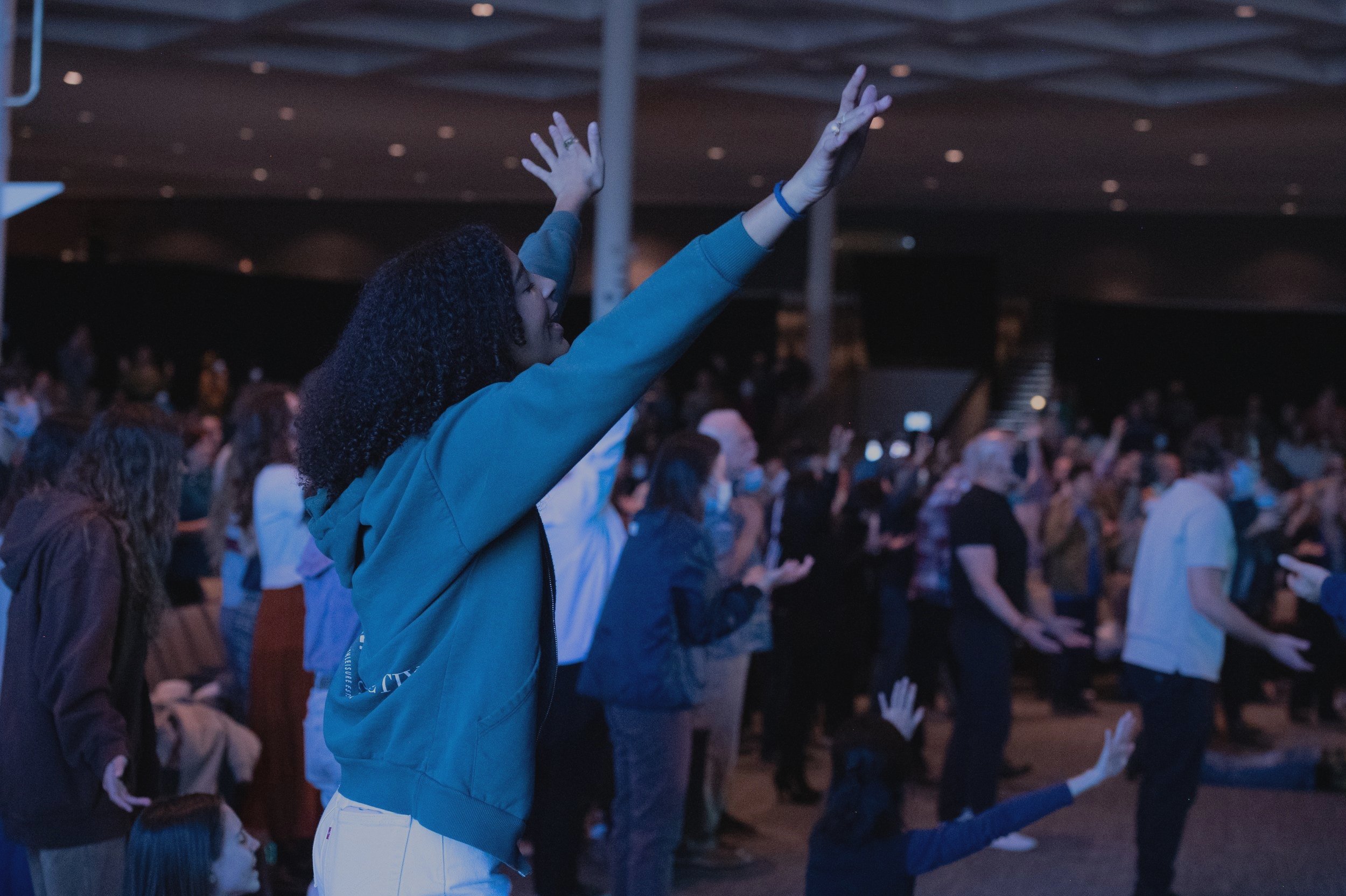
Family Update | 09.25.23
*Brief Update | 09.25.23
On September 7, our assigned judge ruled on the lawsuit, which can be found here, starting at Item 7.
The judge granted our motions, which showed the multiple claims presented by the Plaintiffs do not have any legal merit. The judge also granted the plaintiffs the right to amend their lawsuit to try to cure the legal deficiencies. Most plaintiffs whose legal claims have been rejected by the court are given the right to amend their lawsuit.
On Sept 22, the plaintiffs amended their lawsuit. We now will respond to these amendments within 30 days. The judge will then make another ruling regarding the case likely in November or December.
We ask you to continue to pray for all involved and for the next stages. We still believe our Lord can provide a spirit of peace and reconciliation – while also empowering us to stand firmly to follow the paths He has set before us.
Dwelling Place Anaheim Family Update | 03.10.23
Dear Dwelling Place Anaheim Family,
As you know, on November 9, 2022, a complaint was filed against Dwelling Place Anaheim and its Board of Directors. Our legal team on February 9, 2023, filed a motion in the form of what is called a demurrer. You can find our submitted demurrers at the bottom of these FAQs (one of the demurrers was on behalf of the church and the other was on behalf of the Board of Directors).
It has been our sincere desire to remain true to what we have been taught: don’t defend yourself, but rather let the Lord be your defense. This FAQ is our attempt to continue to follow our hearts and not defend, but state the truth as we know it and experienced it – while remaining committed to the work of the Kingdom. This is our goal even in the midst of many half-truths, improper innuendos, and out-right falsehoods that have been aimed at the Scott’s, the Board of Directors and the church.
It is our hope and fervent prayer that out of this painful situation, great good comes to each of us as individuals and churches as we ALL allow our hearts, motives, and actions to be sifted and refined by God.
FAQs
Who are the plantiffs?
A group of individuals who have been part of Vineyard Anaheim at different points through its history. All of the Plaintiffs, except one, had stopped actively attending the Church prior to the decision to disassociate.
What are the complaints?
Simply stated, they are broadly twofold. 1. The Complaint alleges Alan and Kathryn Scott committed fraud and or negligent misrepresentation to the search committee at the time of their appointment in early 2018 by allegedly not voicing Alan’s purported dissatisfaction with the “Vineyard Movement''. 2. The Complaint alleges the Board of Directors breached their fiduciary duties by not opposing the disassociation from Vineyard USA (VUSA) which occurred more than four years later in early 2022.
Did Alan and Kathryn Scott commit fraud or negligent misrepresentation with the Search committee?
The short answer is categorically, No. No one on the Search committee (which included the entire former Board of Directors, except James Gillentine, who was a candidate for the senior pastor role) raised the question of the Scott’s or VA’s lifelong association to the VUSA organization.
The twelve members of the Search Committee, each with very different perspectives, and after much prayer, ALL voted unanimously that the Scott’s were led to us and chosen by God to lead the church into the future.
Can you explain more about Alan’s communication with Phil Strout, the former leader of VUSA?
The lawsuit includes a very short excerpt, quoted from a 2017 email sent by Alan Scott to Phil Strout, the former National Director of VUSA. This email discussed the Scotts impending move from Northern Ireland to Southern California. The short excerpt was carefully selected by the Plaintiffs to claim that Alan Scott is “expressing his dissatisfaction with the Vineyard Movement and Vineyard USA” (Complaint at pg. 8, lines 13-14).
Had Plaintiffs provided the full email - - or just the sentences before and after - - it would have been clear Alan was commenting on “how we love the Vineyard,” “ it is the fractured nature of the movement in Orange County that makes it difficult to attend church locally without causing undue upset to someone we love,” and “that we will continue to champion the movement ….” The email was intended to convey concern for a few local Vineyard churches in Orange County while reaffirming Alan’s love for the Vineyard Movement. You can read this email in its entirety here.
Furthermore, Phil Strout subsequently wrote a letter of recommendation for Alan Scott’s VISA process which was essential to his ongoing role as Senior Pastor . This letter was sent 15 months after the May 2017 email excerpt in the lawsuit. You can read this letter here and clearly see Alan stayed connected with the Vineyard movement even though he wasn’t attending a local Vineyard church from the time he arrived in the US until the Scott’s appointment as VA Senior Pastors.
Did the Board of Directors breach their fiduciary duties by not opposing the disassociation?
Our Bylaws separate “Business” responsibilities from “Ecclesiastical” responsibilities. The senior pastor (and his leadership team) is solely responsible for ecclesiastical, doctrine and interpretation, direction of ministry and so-on. The Board of Directors is responsible for overseeing the business of the church: approving an annual budget, purchasing property, etc.
The corporate Bylaws clearly state that the Senior Pastor and the pastoral leadership team have sole prerogative in the following:
All ecclesiastical matters relating to the spiritual health of the church
Matters of doctrine and interpretation
Matters of spiritual ordinances
Direction of ministry
Leading and discernment for initiating or terminating ministry activities
Any other matters reasonably connected to spiritual leadership
The above matters, (which would include the 2022 disassociation with VUSA), are NOT within the authority granted to the Board of Directors.
Since dissociation with VUSA does NOT fall under the corporate powers granted to the Board of Directors under the Bylaws, the Board members could not have breached their fiduciary duties to the corporation.
*We have attached a copy of our bylaws below, which informed/guided the conversations and decisions. It highlights the authority of the Senior Pastor and the role of the Board in all ecclesiastical matters and the Board in non-ecclesiastical matters. (among other sections, see Page 20, Miscellaneous, Section 5).
What do the plaintiffs want?
The plaintiffs are requesting several things, including control of the church’s assets, significant monetary damages, and the cost of the lawsuit itself. This would be accomplished by replacing the current Board of Directors with those that existed prior to the Scott’s election (which includes four of the plaintiffs), to govern the church and appoint a new Senior Pastor. In essence, Plaintiff’s seek to remove the entire 2023 Board and replace them with individuals who were previously on the Board. Some of these individuals haven’t attended or supported the church since the 2022 disassociation, and some haven’t attended the church for multiple years.
Who owns the assets?
The church and its assets have always belonged to the same Religious Non-Profit 501(c)(3) entity that owned them before the disassociation. The purpose of our organization, corporate entity, its officers, and corporate governance remain exactly the same before and after the disassociation with the VUSA Organization.
Per our Articles of Incorporation and California and Federal Law, NO ONE on the Board, Employees, Officers, church members or any other person can receive any benefit from the assets of the Corporation (beyond reasonable compensation for services performed). These assets are irrevocably to be used for the Religious Non-Profit and if ever dissolved, they MAY NOT individually benefit any of the aforementioned folks; they must be transferred to another religious non-profit.
Is the church ok? The lawsuit states that church attendance has dramatically decreased since the disassociation. Is this true?
Naturally, the last year has been challenging in multiple ways and (in true So. Cal style) people have moved for various reasons. Some out of state, some on to other churches and some out on mission. Some people have moved because they disagreed with the decision to disassociate and others have come since the disassociation.
Our church is flourishing and thriving in what God has called us to do. Compassion and engagement with the city have multiplied. Each week people encounter Jesus, prayer is increasing and lives are being changed. We continue to be a multi-ethnic and multigenerational family.
But, to be clear, our church attendance now is larger than it was the month prior to the disassociation.
What are the next steps in the lawsuit?
The church and its leaders are called to respond to the Complaint in order to protect the religious organization. The legal system provides certain steps to be taken by all of the Defendants. The legal responses are intended to invoke what is called the “Church Autonomy Doctrine,” which is a Constitutional protection for religious organizations. In essence, this doctrine protects churches by not allowing the civil court system to second guess or decide religious or ecclesiastical matters. The first response is called a demurrer.
What is a demurrer?
It is a legal response designed to have the claim denied by specifically addressing only its legal merits. In this instance, we believe the courts do not have authority to second guess or determine ecclesiastical matters which involve, for example, what is the “Vineyard Movement.” This position is based on 200+ years of courts honoring the “Church Autonomy Doctrine.” The demurrer also asks the court to rule that the Plaintiffs do not have “standing” or the right to sue. This is based on both the bylaws which dictated who can file a complaint, and on common sense rules of law which provide that tithing in any amount and at any time does not allow you to sue your church.
Does the demurrer address all the factual accusations in the complaint?
No. While there are multiple inaccuracies, mis-statements, and falsehoods in the complaint, legal rules do not permit us, at this time, to focus on the factual allegations. The demurrers can only raise limited legal challenges.
What happens next?
We await a determination from the judge as to the legal viability of the complaint and whether it is permitted to move to the next stage. This usually takes between 60 and 120 days, but is highly variable based on judicial availability and court scheduling concerns.
What can we do?
The Senior Pastors, the Board and all staff urge you to pray for everyone involved in this dispute. Our Lord can provide a spirit of peace and reconciliation – while also empowering us to stand firmly to follow the paths He has set before us.
*There is a hearing now scheduled for September 1, for the demurrers.
ADDITIONAL DOCUMENTATION
For completeness, below are the detailed additional filings in support of the Demurrers (Declarations, Exhibits and Joinder):
Scott (Wimber) 2023 0209 Decl of A. Scott re Demurrer (individuals)
Scott (Wimber) 2023 0209 Decl of S. Graham ISO Demurrer (Individuals)
Scott (Wimber) 2023 0209 Decl of J. Peiffer ISO Demurrer (Church)
Scott (Wimber) 2023 0209 Decl of J. Renwick ISO Demurrer (Church)
Scott (Wimber) 2023 0209 RFJN re Demurrer (Church - Exhibits)
Scott (Wimber) 2023 0209 RFJN re Demurrer (Individuals - Exhibits)

